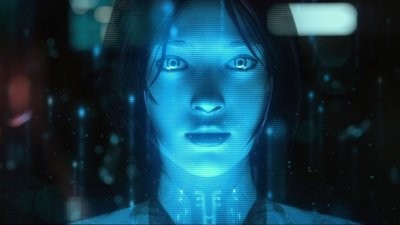Microsoft researchers have reported that their artificial intelligence (AI) for voice recognition can detect human voices as accurately as human ears. The tech giant's NIST 2000 automated system challenged professional transcriptionists and for the first time ever humans had a higher error rate than computers. Improved speech recognition could improve several Microsoft products including its Xbox gaming console and Cortana voice assistant.
Microsoft announced the news on October 18, Tuesday. The report shared that this was the first time in world history that a computing machine could detect human speech as well as humans.
The AI system of the Washington State-based company had a word error rate of 5.9 percent. It could not pick up every word that was said but the 95 percent accuracy is high enough for having a bot chat.
Geoffrey Zweig is a Microsoft researcher. He shared that the milestone resulted from two decades of work in the field of AI voice recognition.
Recent tech breakthroughs have resulted in part from research in machine learning and neural networks. The latter is an information processing system inspired by how the human brain processes large amounts of information.
Microsoft researchers developed NIST 2000 using its own open-source Computational Network Toolkit. It can still have problems picking up speech in noisy environments, but can also be tweaked to detect accents better.
The Bill Gates co-founded company shared that the tech milestone could have many applications in future consumer and business products. They include instant speech-to-text transcription tools, according to VentureBeat.
Microsoft CEO Satya Nadella has stated that conversation will have the same effect on computing as graphic user interfaces (GUI). He also claimed that in the near future conversation will be added to all computing.
There have recently been other portentous tech developments to help computers pick up human voices much better.
Baidu Research teamed up with the University of Washington and Stanford University earlier this year. The Chinese Internet company's program Deep Speech 2 transcribed speech three times faster than human typists.
Meanwhile, some of the first developments in computer speech recognition was from the United States' Department of Defense. In the 1970s its Defense Advanced Research Projects Agency (DARPA) started doing speech recognition research.
In related news, Microsoft is reportedly beta testing new features to Cortana before rolling out the changes to the newest Windows Insider build, according to Digital Trends. Only randomly-picked Windows Insiders are getting upgrades such a moved search bar.
Here's a video on Cortana for iPhones:



























